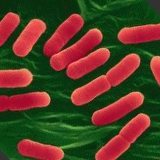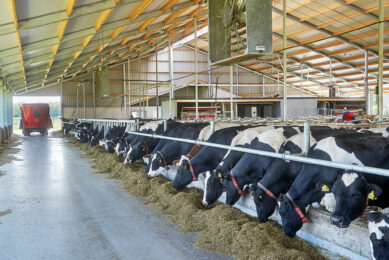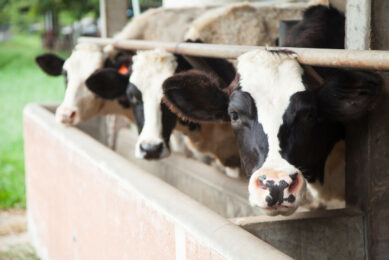More E. coli O157 when feeding DDGS

Recent research at Kansas State University has found that cattle fed distiller’s grain have an increased prevalence of E. coli 0157 in their hindgut.
E.
coli O157 is present in healthy cattle but poses a health risk to
humans, who can acquire it through undercooked meat, raw dairy products and
produce contaminated with cattle manure. The growth in ethanol plants means more
cattle are likely to be fed distiller’s grain, therefore harboring 0157 and
potentially a source of health risks to humans, according to T.G. Nagaraja,
professor of diagnostic medicine and pathobiology at K-State’s College of
Veterinary Medicine.
Twice as high
A study on the
carcass quality of cattle fed distiller’s grains showed that the prevalence of
0157 was about twice as high in cattle fed distiller’s grain compared with those
cattle that were on a diet lacking the ethanol byproduct. According to Nagaraja
it could be something that changes in the animals’ hindgut as a result of
feeding distiller’s grains, or maybe the byproduct provides a nutrient for the
bacteria.
Understand it
“Feeding cattle distiller’s grain is a big economic
advantage for ethanol plants,” Nagaraja said. “We realize we can’t tell cattle
producers, ‘Don’t feed distiller’s grain.’ What we want to do is not only
understand the reasons why 0157 increases, but also find a way to prevent that
from happening.”
Chlorate
additive cuts back Salmonella and E. coli
Related
link:
Kansas State
University











